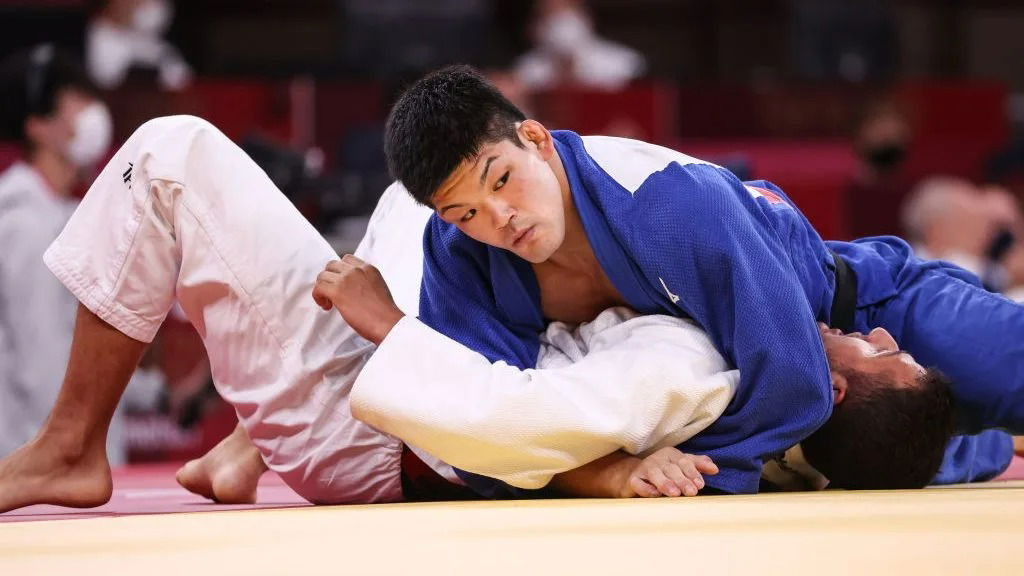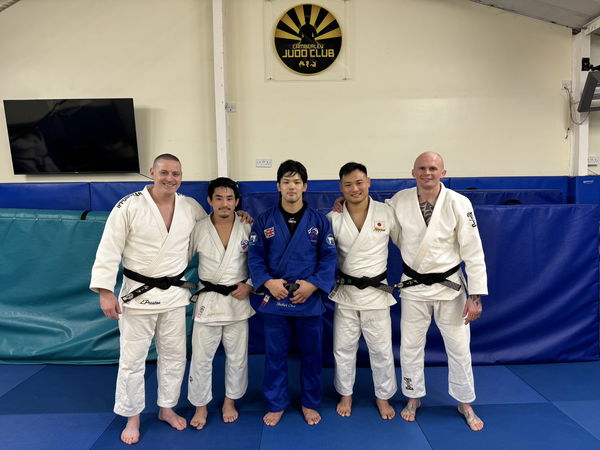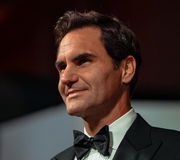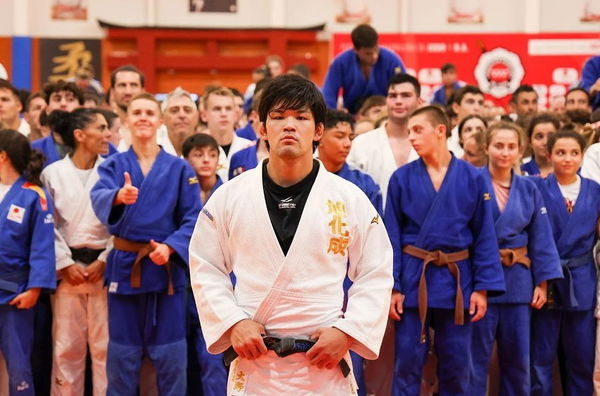

Giving back to the sport is often an athlete’s goal. But normally, athletes do that after they’ve passed their peak. Rarely does one see an athlete in his prime turning into a coach. Then again, that’s what makes Japan’s judoka Shohei Ono so special. Despite winning two golds in the Olympics and having a 90% win rate, Ono skipped the 2024 Paris Olympics. That made everyone question just one thing: has this legendary judoka really retired from the sport? However, while the answer to that is complicated, the real surprise is how Ono has grown to love the European Judokas.
Watch What’s Trending Now!
Yes, Ono hasn’t made any official retirement announcements yet. But all his actions point toward the inevitable. For instance, a great coach, Shohei Ono, has embarked on a journey to the west and is now well-settled in Europe. More precisely in Scotland. Because that’s where Ono’s next mission can find completion—the mission to spread his Ono style in Europe and make them more in tune with traditional Judo. What is the reason for giving up competing? “The more I win, the more I hate judo,” said Ono.
“When I came from Japan last summer, I was driven by a sense of mission that I had to make the Scottish athletes stronger and teach them my techniques,” Ono said in an interview. However, he quickly understood it wouldn’t be that easy. But more than that, one thing surprised Ono. He saw European athletes trying to “understand the spiritual side of judo better than Japanese judokas.” That is a big statement coming from this legend.
ADVERTISEMENT

ADVERTISEMENT
Interestingly, though, Ono has never openly said that he has retired. Even in the interview, he never explicitly said that he’s retired. Instead, the article claimed that the iconic Japanese judoka had just taken a break to pursue coaching. However, while one still wonders whether this break will ever end, his respect for European judokas directly contradicts the recent controversy around the sport.
ADVERTISEMENT
Shohei Ono’s contrary view to Japanese judo fans’ outrage
Japan won 12 medals in Judo during the Tokyo Olympics, and that included 9 golds. That was as total a dominance as ever in a sport. However, things are looking particularly shaky this time in the Land of the Rising Sun. They’ve just won a total of 7 medals in Judo yet but more importantly, they’re nowhere near the 9 golds that they won then. As of now, Japan has won just 3 golds in this sport. That has frustrated fans, who are now saying that the sport has been Europeanized and doesn’t favor them at all.
As a result, calls have even been made for Japan to leave the IJF. The reason? It no longer feels like Judo to them. The judges hold bias, and there is nothing traditional left in the sport, according to the fans. However, now Shohei Ono has come out to praise the European judo culture. The star has noted how the European Jodos have made him ask himself whether he “can be proud” of himself as a Japanese Judoka. This is a big contradiction, but it also shows how real-world experience can sometimes differ from person to person.
Top Stories
Greg Biffle’s $4M Worth Prized Possession Still Without a Buyer Leaves NASCAR Fans Heartbroken

LIV Golf Braces for Another Possible Exit in Wake of Brooks Koepka Departure

Sean Payton Announces Retirement Plans as Broncos HC Demands Improvement From Bo Nix & Co. Before Playoffs

Biff Poggi All But Confirms Bryce Underwood’s Michigan Future After Announcing His Own Departure

Roger Federer Draws Criticism from Swiss Government Chief for Tourism Boom in Country

Amanda Balionis Confirms New Relationship Ending Months of Rumors

So, has Shohei Ono retired? He hasn’t made any announcements about it. But Ono no longer lives in Japan and is dedicating his efforts to honing the skills of Scottish Judokas. That has given him a newfound respect for that part of the world. Could this respect find a way to Japan? Perhaps it could. Until then, this battle might rage on. However, Ono’s journey transcends this debate, revealing a deeper narrative of personal growth, cultural exchange, and the enduring spirit of judo.
ADVERTISEMENT
A deeper look at Ono’s motivations and the cultural exchange in Judo
While the intense pressure of competition was a contributing factor, Shohei Ono’s decision to relocate to Europe was fueled by a multifaceted desire for personal and professional growth. As he states in the interview, “My current life basically consists of attending practices with local club teams and the Scottish national team, training and teaching them, while also studying English.” This reveals his keen interest in exploring the coaching aspect of judo and immersing himself in a new language and culture, indicating a broader aspiration to expand his horizons beyond the competitive arena and contribute to the sport in a different capacity.
Shohei Ono’s observations about the cultural differences in judo between Japan and Europe offer valuable insights into the diverse approaches to the sport. He emphasizes the “lifelong sport” aspect prevalent in Europe, stating, “In the club team I go to in Scotland, people in their 40s and 50s and older are doing judo.” Individuals of all ages and skill levels participate in judo for various reasons, including health, personal challenges, and community building. This contrasts with the more competitive and youth-focused environment often associated with judo in Japan.
ADVERTISEMENT
Furthermore, Ono notes distinct differences in training methodologies between the two regions, explaining, “The skeletal structure of athletes in Japan and Europe is different to begin with. (Europeans) may be physically strong, but their hip joints are stiff, and I feel that they are not able to fully utilize the strong parts of their upper body. Japan is good at flexible movements (of the lower body), such as splitting the legs, as in sumo.” This cultural exchange presents an opportunity for mutual learning and growth, as both regions can benefit from incorporating elements of each other’s approaches.

ADVERTISEMENT
Shohei Ono’s journey from a two-time Olympic champion to a mentor for European judokas is a testament to his enduring passion for the sport and his willingness to embrace new challenges. In his own words, “Living in Europe, where sports are so close, teaches me things every day.” His experiences highlight the evolving landscape of judo and the potential for cross-cultural collaboration to enrich the sport on a global scale. By bridging the gap between Japanese and European judo traditions, Ono is not only shaping the future of individual athletes but also contributing to a more inclusive and diverse judo community worldwide.
In conclusion, Ono’s story is not just about stepping away from the pressures of competition; it’s about embracing a new chapter filled with personal growth, cultural exchange, and a continued dedication to the sport he loves. As he eloquently puts it, “I personally believe that there is no retirement for a judoka, and that it’s a lifelong training.” His journey serves as an inspiration for athletes and coaches alike, demonstrating the transformative power of stepping outside one’s comfort zone and embracing new perspectives. As Shohei Ono continues to explore the depths of judo in Europe, his legacy extends beyond his Olympic achievements, leaving a lasting impact on the global judo community.
ADVERTISEMENT
ADVERTISEMENT
ADVERTISEMENT
ADVERTISEMENT

